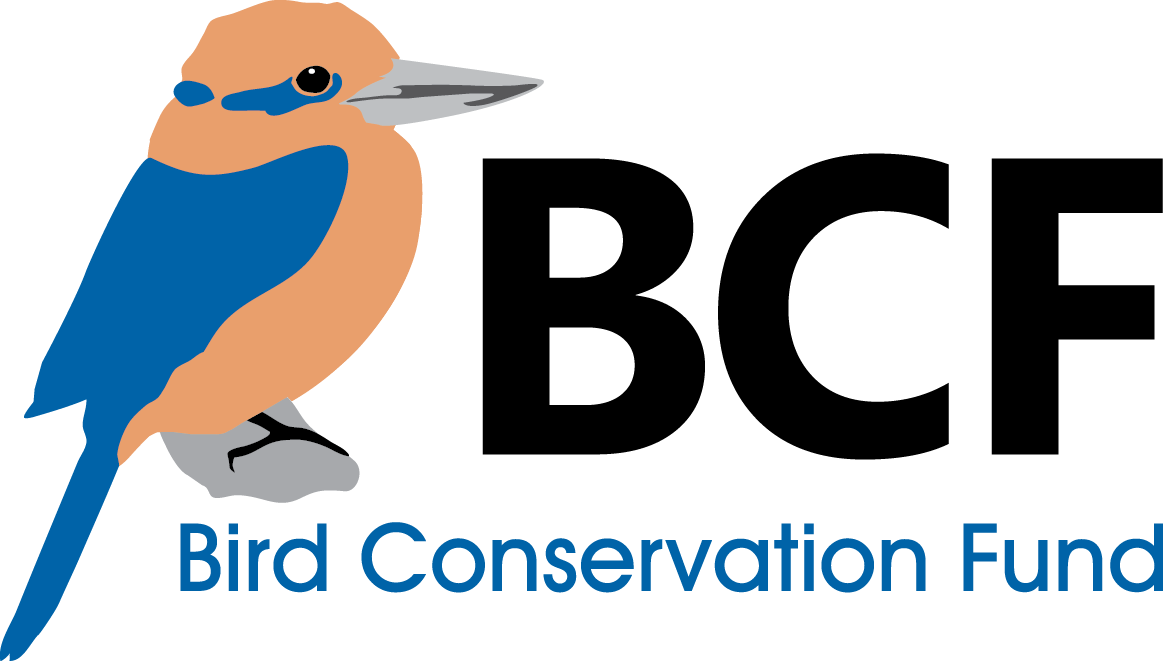Príncipe Scops-Owl
Príncipe Scops-Owl/Photo Thanks to Martim Melo with support of the National Geographic Society
ACOUSTIC MONITORING OF THE SCOPS-OWL AND OTHER THREATENED SPECIES ON PRÍNCIPE ISLAND
The Bird Conservation Fund working partnership with the African Bird Club raised $6,900 to support an expedition organized by Barbara Freitas under the auspices of Fundação Príncipe to install passive acoustic monitors on Príncipe Island to better understand the status of the recently described Príncipe Scops-owl.
A completely new species of Scops-Owl was first documented by a scientific expedition in 2016, on the island of Príncipe, one of the two main islands comprising the nation of São Tomé e Príncipe off the west coast of Africa. For the previous century, there had been some rumors of an owl in the dense tropical forest in the southern part of the island, but various expeditions had failed to turn up conclusive evidence. When an owl was finally photographed and recorded, it appeared to be quite different than the São Tome Scops-Owl, and any other species of Scops-Owl that occur on mainland Africa. The taxon has been proposed as a new species and is now in review. The good news is that researchers have since found more Príncipe Scops-Owl in numerous locations on the remote southern part of the island, but given its overall scarcity and continuing external threats, it will likely be classified as Endangered or Critically Endangered immediately upon its establishment as a species.
The Bird Conservation Fund is supporting a new expedition organized by a Portuguese scientist, Barbara Freitas, that will install a network of passive acoustic monitoring equipment, in order to better understand the status of owl. The team will also train local park rangers and a local non-profit in data collection and the maintenance of the monitors. Finally, the expedition will conduct two workshops in São Tomé e Príncipe to educate local officials on the presence of this species, and to advocate for a conservation plan for the population.
The islands comprising the nation of São Tomé e Príncipe are a globally significant biodiversity hotspot with a large number of endemic species, including at least 26 species of bird found nowhere else in the world. The islands are remote and volcanic, with dense tropical forest, which have never been attached to the mainland of Africa, resulting in a high degree of endemism. Príncipe alone holds at least eight endemic bird species, including the Critically Endangered Príncipe Thrush, which was long thought to be extinct until its rediscovery in 2002. About 1/3rd of the island of Príncipe, including all of its remaining primary forest, was declared a national park in 2006. Nonetheless significant conservation threats continue, including land-clearing, hunting, and wildlife trapping particularly for the parrot trade.
The expedition will install a network of passive acoustic monitoring (PAM) devices that have been shown to perform extremely well for this species, and which will gather data at a much lower cost than direct surveys. The monitors will establish the distribution of the Príncipe Scops-Owl and the number of individuals per sampling point. Local park staff will be trained on the deployment of the automatic recorders, data retrieval, and data analysis.
The automated workflow that can immediately be applied to monitor the Scops-Owl can also be adapted to other species as well, including the Critically Endangered Príncipe Thrush, whose sightings have proven too rare to determine a population trend, and to the three endemic species of frog whose distribution are poorly known. Given the facility in obtaining distribution data through this method, it could be used to reassess species under Red List category A, B and C (distribution and population trends), thereby contributing information for the long-term conservation strategy for these species.
The team will also conduct workshops to help local government officials, park staff and the general public understand the project and raise awareness on the uniqueness and ecological role of the Príncipe Scops-Owl. The team seeks to establish local pride in the discovery of the new species and advocate for the creation of a conservation plan.

